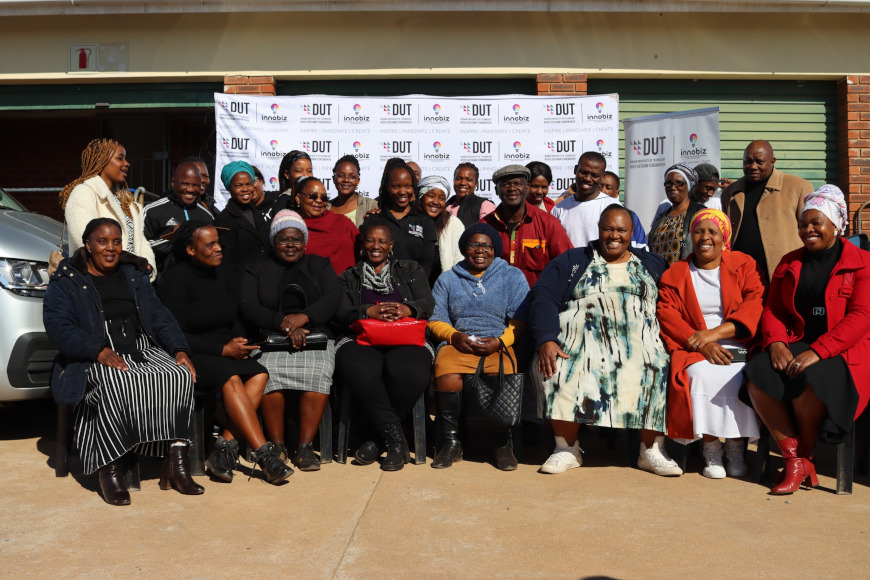The innobiz Durban University of Technology (DUT) Centre for Entrepreneurship and Innovation, in collaboration with the US Embassy, the University of Alabama, the University of Maryland, and Loyola University hosted a three-day Agripreneurship for Kids Train the Trainer Bootcamp at Vumanhlamvu Primary School in Nkandla, KwaZulu-Natal. The programme was implemented to capacitate all selected educators from 18 adopted schools in Nkandla to be able to apply creativity when teaching the Agri for Kids programme at their schools.
The programme was introduced by the principal of Vumanhlamvu Primary School, Mr William Vilakazi, who welcomed everyone, and gave thanks to the Centre for developing the programme for educators to participate and gain effective skills that will uplift the standard of living for learners and the community at large.
The first day of the programme was theoretical training on vegetable crop production, focusing on the processes of growing and harvesting. The first session was facilitated by Dr Harry Swatson, Agri Specialist at innobiz DUT, who outlined the importance of agripreneurship and why it should be a priority to learners and the community. He further stated that attending this programme will play a huge role in their learners’ entrepreneurial journey.
“This programme was formed to help learners to look at life from different perspectives, infusing integrity, morals throughout their upbringing, creativity, and financial independence. The notion of agriculture is that there would be no food without farmers, and we would starve to death, the objective at the end is to improve the standard of nutrition in the production of vegetables, hence programmes like the Agripreneurship Train the Trainer Bootcamp exist,” stated Dr Swatson.
innobiz DUT Community Engagement Coordinator, Mr Khothatso Memela, facilitated the second session where he presented the five-step design thinking approach, with a purpose of improving educators understanding this project of agripreneurship and ensuring creativity when it comes to teaching their learners.
“We wish to produce learners that will bring ecological, economic, civic, and cultural values to the community through agricultural entrepreneurship,” shared Memela.
The design thinking exercise discussed capability analyses, including the opportunities, assets, and challenges associated with the implementation of this project at Nkandla. During the presentation, educators were tasked to work in groups engaging in the design thinking activity. The activity given revealed the buying patterns, and challenges faced by vegetable buyers, these included travelling to get vegetables, poor local supply, and high costs. Possible solutions identified included establishing school gardens, and community gardens, teaching agriculture at elementary school level, and hosting agricultural training for communities, and awareness programmes.
The next two days of the programme were practical training where the attendees participated in vegetable crop production, garden layout, planting of seedlings and making of compost from scratch. The session also outlined the types of soil that differently affect the growth of vegetable crops and which soil is suitable for growing vegetables, allowing for proper growth.
The educators participating deemed this programme highly educational, with one of the educators stating that the bootcamp was informative and insightful. She wished for this programme to be extended to other schools in Nkandla.
Pictured: Educators who were part of the Agripreneurship for Kids Train the Trainer Bootcamp.
Khonzinkosi Magcaba

